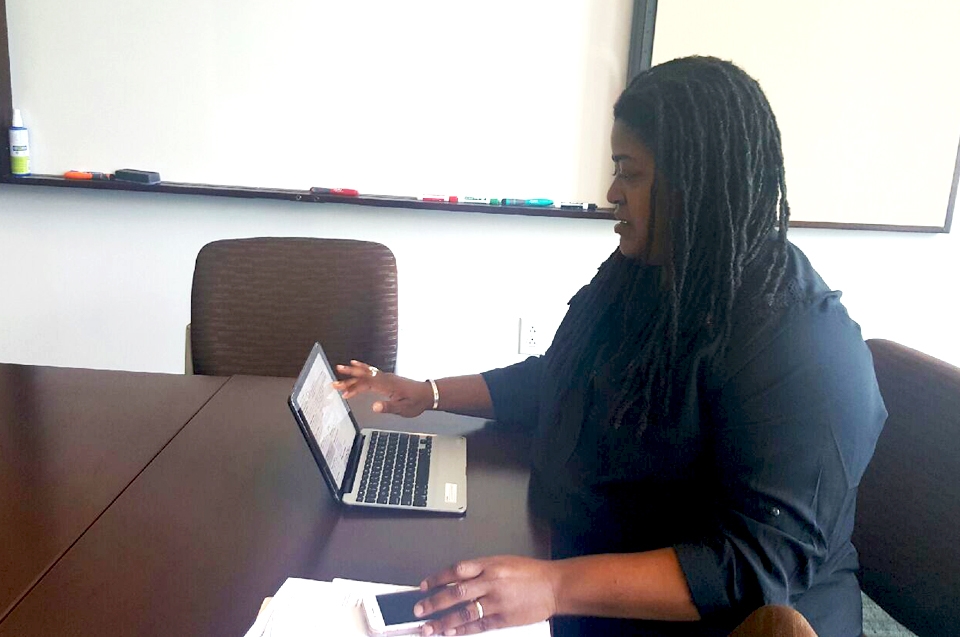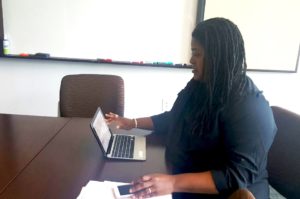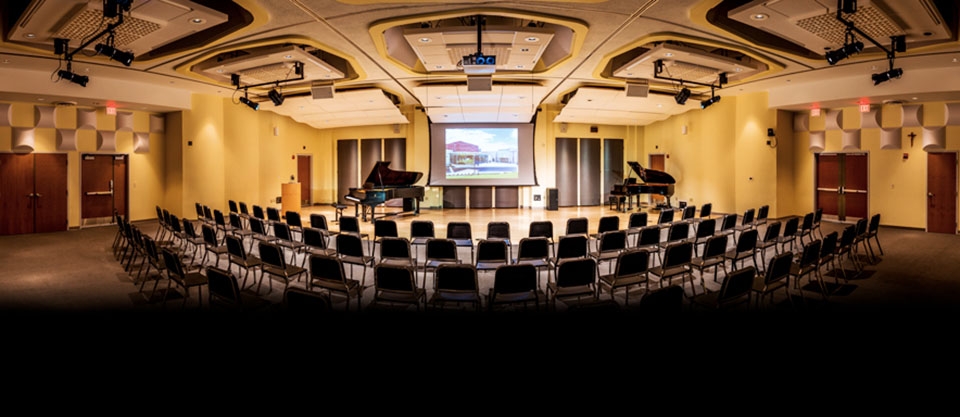

Tiffany Sizemore-Thompson sits in a room in the Tribone Center. Sizemore-Thompson has created a law clinic which advises grade, middle and high school children.
Carolyn Conte | Staff Writer
Pittsburgh-area grade school and high school students in danger of expulsion will have a new place to turn to for help in Duquesne’s new Education Law Clinic.
Assistant Clinical Law professor Tiffany Sizemore-Thompson will supervise students as they pursue juvenile cases in the new clinic, which partners Duquesne law students with Pittsburgh schoolchildren and their families. The clinic will help advise families of students who face expulsion, suspension and other forms of school discipline.
In the clinic, law students will be trained on the repercussions of a delinquency case, as well as how to work with educational administration both in oral and written defenses during an administrative school hearing.
Sizemore-Thompson said their clients, who are actual Pittsburgh students in need of attorneys, are referred to the clinic by court, social service agencies, parent advocacy organizations and other non-profit legal providers.
After Sizemore-Thompson screens them, law students will be paired in a team defense, and they might also train with students in the law school’s Juvenile Defender Clinic, in which students represent clients in juvenile court.
Sizemore-Thompson said school disciplinary cases “tend to move pretty quickly,” spanning 30 to 60 days on average. If the case is not resolved by summer, she will take it over.
One of Sizemore-Thompson’s eight law students, Arbaaz Rao, expressed joy for the opportunity to represent actual clients. Rao had worked at internships before, but never led a suit.
“I had my first case yesterday,” Rao said with a bright smile.
Rao met with a middle school student and the student’s grandmother to go over their plan for how to address the potential expulsion of the student. Sizemore-Thompson will supervise this case, as well as the others.
“My work as a public defender was absolutely inspirational to my decision about what kinds of clinics to develop and direct,” Sizemore-Thompson said. “[It is] scary how clearly one can see a direct path from when a child was kicked out or dropped out of school to his or her entry into the criminal legal system.”
She advocates for schools to be more wary of the consequences of removing children.
“I know and have seen what some of those kids look like 10, 20 or 30 years later,” Sizemore-Thompson said. “We owe our children more than a closed door, and the Education Law Clinic seeks to stop that pipeline of school pushout.”
“I would describe her as a busy person,” Rao said of Sizemore-Thompson. He added, “She has a lot on her plate. It’s impressive. She is very hardworking and encourages us to be the same way … but to be ourselves too.”
Besides Rao’s case, the clinic is also working with a mother of a six-year old autistic girl who has been repeatedly excluded from school and a student who was “unfairly” kicked out of his school last year, according to Sizemore-Thompson.
Another student who registered to work at the clinic is Mohammed Al-Bidhawi, a third year law student.
“I enjoy helping people and letting them know that they have resources to help with the education of their children,” Al-Bidhawi said.
He has experience in the field as a legal fellow for the Education Law Center of Pennsylvania. There he worked on cases, policy meetings and filed an appeal.
“I have come to the realization that the education system needs reform because it is very unjust to minorities and colored people,” Al-Bidhawi said. “In the clinic, I hope to represent the people that need it — the people that have the system working against them. Segregation in the education system continues to exist, and it is organizations like the clinic that can make a difference in people’s lives.”
Sizemore-Thompson wants the clinic to get involved with the cases before an attorney needs to step in, because while schools are fully aware of how the law works, families are often at a disadvantage.
The clinic’s mission is to offer free, “holistic” representation to families, which Sizemore-Thompson calls its “unique” defining point. She used the word “holistic,” because the clinic’s work does not stop at solving legal matters.
“If a family is facing homelessness or hunger, our social work interns can connect them to appropriate resources in the community,” she said. “As an alternative to exclusionary school discipline, our school psychology students can create behavior plans that will help the students attorney negotiate to keep a child in school.”



